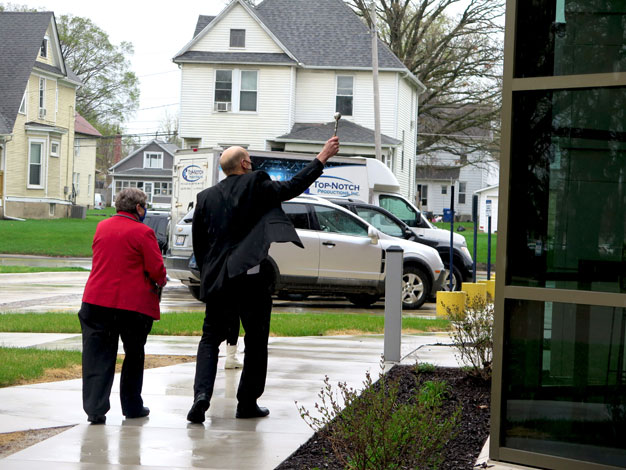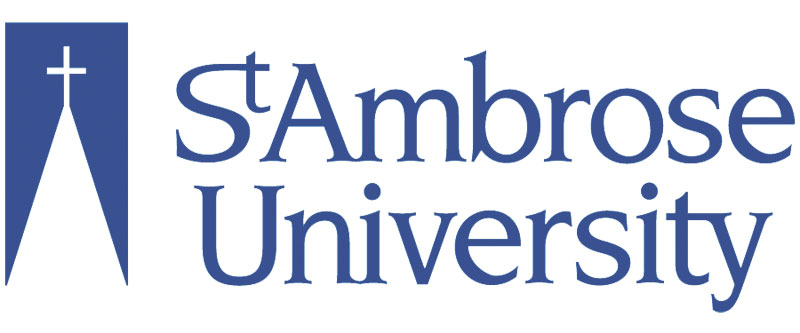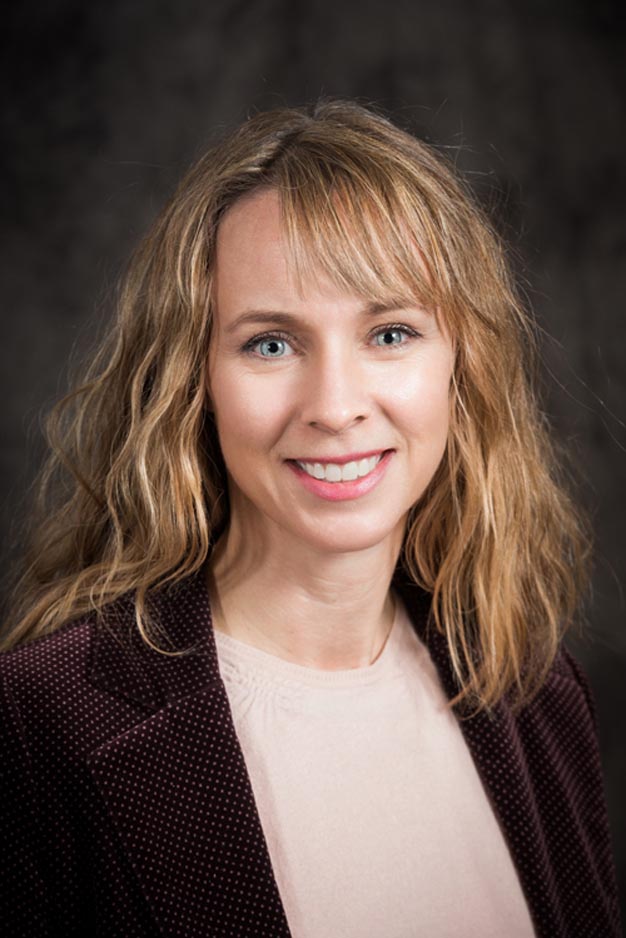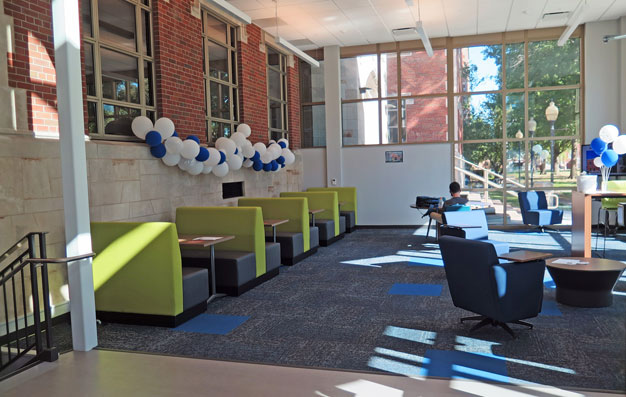
Bishop Thomas Zinkula blesses the remodeled and expanded McMullen Hall during a dedication ceremony April 8 at St. Ambrose University in Davenport.
By Anne Marie Amacher
The Catholic Messenger
DAVENPORT — Formal dedication of the expanded and remodeled McMullen Hall took place outdoors April 8 at St. Ambrose University with steady rain as a backdrop. A tent set up near the building held a limited number of guests, all wearing masks and keeping their distance as they could due to the rain.
Workers completed the $8.6 million McMullen Hall project last summer and it now serves as home to the St. Ambrose College of Business. Classes were held in-person starting last fall in the new facility.
During the opening prayer, Bishop Thomas Zinkula gave thanks to God “for this building that has served us well for many years and will serve us even better for years to come because of these renovations. We thank you for the goodness and generosity of those who have made this project possible. Help us to trust more fully in you and to recognize that we are stewards of your many good gifts.”
St. Ambrose University President Sister Joan Lescinski, CSJ, in opening remarks, described the state-of-art facility as “a place for business.” McMullen Hall consists of 15,949 square feet of new addition for classrooms and learning labs, with another 22,413 square feet of remodeled interior space housing faculty offices and a dean’s suite. A highlight of the new addition is a two-story, light-filled atrium that serves as a study lounge and gathering space. New classrooms include two seminar rooms, a tiered lecture hall, a computer lab, sales lab, finance lab and co-curricular lab.
Jim Field, a recently retired Deere & Co. executive, and a member of the St. Ambrose University Board of Trustees, said the building “will provide unparalleled opportunities for students, faculty and the entire QC community for generations to come.” McMullen Hall “will afford students an opportunity to develop a deep and broad-based St. Ambrose education which is clearly made richer by our liberal arts and religious heritage.”
Following speeches by other speakers, Bishop Zinkula blessed the building. He asked God to “make it a center where students and professors, imbued with the words of truth, with right thinking, and compassionate hearts, will search for that true wisdom that comes from you and that our world and times most need. May this building and all who will pass through its doors serve as witnesses in the world of your abundant love. We ask this under the patronage of Mary, of St. Joseph, her spouse and patron of workers, St. Ambrose of Milan, and through Christ our Lord. Amen.”
As members of the St. Ambrose University Chorale sang “Ambrosian Oaks,” Bishop Zinkula sprinkled the exterior of McMullen Hall with holy water. The ribbon cutting took place inside the building.
(For further details about the McMullen Hall project, go to http://www.catholicmessenger.net/2020/10/new-sau-addition-is-open-for-business/)









